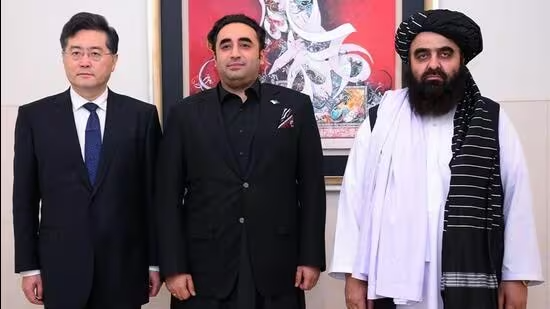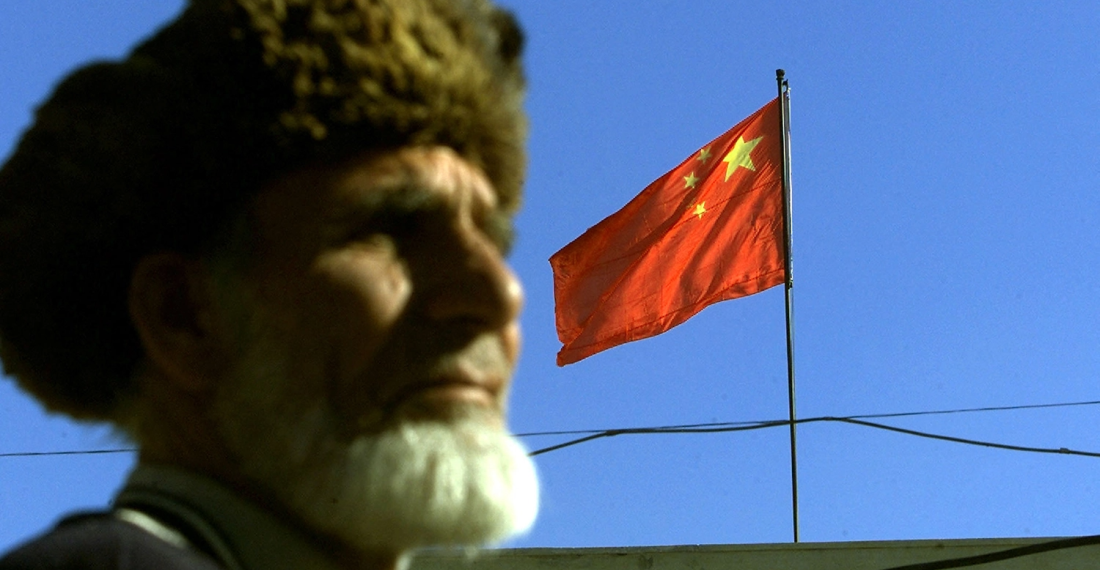This briefing first appeared in the 30 May 2023 issue of our newsletter, Central Asia Concise. If you would like to subscribe to Central Asia Concise, or any other of our newsletters, please click here.
It seems as if you cannot be respected as a superpower unless you burn your fingers trying to pacify Afghanistan, writes commonspace.eu in this editorial. The British in the heyday of the Raj, tried it in the 19th century; the Soviets tried it at the peak of their power in the 20th century, and the Americans had a go at a time when they were the only superpower, in the early 21st century. Now it seems it's China’s turn, and of course it is being done the Chinese way. There are no armies swarming across the Khyber Pass, nor forward military bases established across Central Asia. Instead, the Chinese are using their time tested tool – the Belt and Road Initiative.
The first announcement came on 8 May following the 4th round of the Pakistan-China Strategic Dialogue in Islamabad with the participation of Chinese foreign minister Qin Gang and his Pakistani counterpart Bilawal Bhutto Zardari. In essence, the two sides agreed that the China-Pakistan Economic Corridor (CPEC), a part of the Belt and Road Initiative, will be extended into Afghanistan. At that meeting it was also agreed that both sides will “continue their humanitarian and economic assistance for the Afghan people and enhance development cooperation in Afghanistan”.
A statement by Pakistan’s foreign ministry immediately after the meeting stated that, “both sides called on all stakeholders to work together for a peaceful, stable, prosperous and united Afghanistan, which would firmly combat terrorism and live in harmony with its neighbours. The two sides underscored the need for the international community to provide continued assistance and support to Afghanistan including through unfreezing of Afghanistan’s overseas financial assets.” Following the withdrawal of US troops from Afghanistan in 2021, Washington froze the overseas assets, including gold and foreign reserves of the Afghanistan Central Bank and placed the country under sanctions.
In recent days, the Taliban’s de facto foreign minister, Amir Khan Muttaqi, travelled to Islamabad to meet his Chinese and Pakistani counterparts and seal the agreement. Reports suggest the Taliban also want China to boost investments in the country’s natural resources, estimated to be worth US$1 trillion. The Taliban signed its first China contract in January this year with Xinjiang Central Asia Petroleum and Gas Company (CAPEIC), a subsidiary of China National Petroleum (CNPC). Worth US$541 million, the agreement is a 25-year contract to extract oil from more than 1,700 square miles of the Amu Darya basin in Afghanistan and provides the Taliban with a 20% stake for no investment, involvement or risk.

All-in-all, this appears to be a win-win situation, except that this is Afghanistan, and things are not quite as simple.
Up to now Chinese businesses have been wary of investing in Afghanistan due to attacks by the Islamic State group (ISIL) which is locked in a conflict with the Taliban and which in December, took credit for an attack at a Kabul hotel popular with Chinese diplomats and businessmen. The East Turkistan Islamic Movement, a Xinjiang-based separatist group, is also present in Afghanistan.
By engaging with Afghanistan through Pakistan, China is taking a big gamble
Tribal and ethnic rivalries make Afghanistan a place difficult to navigate, as previous empires and superpowers have found out over the centuries. Pouring in money for development is not a new strategy. The Soviets did it in the 1980s, the Americans, even more recently. Most of it ended up being stolen or squandered. There is no reason why the same will not happen with Chinese money. China is hoping that engaging with Afghanistan through Pakistan will make its task easier. Only up to a point. It is true that Pakistan is the only country that has influence over the Taliban, and Islamabad can navigate Afghan politics better than most. But Pakistan is also a nemesis for many non-Pashtun Afghans, and if the Chinese are perceived by Afghans as being, rightly or wrongly, proxies of Pakistan, their presence will be less than welcome by many.
There is no doubt that China’s main concern and interest in Afghanistan is security. Like the rest of the international community China does not want Afghanistan to become again the epicentre of Islamist-inspired terrorism. That can result in a serious security threat for China, as well as for Chinese interests in Central Asia. But China also wants to make sure that Afghanistan is not a vacuum that can be filled by others, so it is using the current ambiguity in the world’s engagement with the Taliban government in Kabul to fill that vacuum.
India and Russia are wary of increased Chinese presence in Afghanistan
Not everyone will be pleased. India has for long had a policy of trying to deny Afghanistan to Pakistan. Denying it to China is an even higher priority given the potential of a Sino-Indian confrontation in the future. The Russians too, whilst glad to see the backs of the Americans in 2021, were hoping to increase their influence in the country. They are now too busy in Ukraine to be able to put much effort and resources in that endeavour. The new awkwardness in Russia-Central Asian relations also reduces the number of cards Russia can play. So Moscow watches Beijing’s push into Afghanistan with a forced smile.
Many believe that it is not a question of if, but rather of when, the Chinese will follow in the footsteps of the Raj, the Soviets and the Americans, and also burn their fingers in a country that has in the past shown that it was allergic to good governance, modernisation, and to foreign influence. One thing is for sure: to deal with Afghanistan China has to be ready to allocate huge resources. The drain of those resources will ultimately determine the length and nature of the Chinese engagement.






